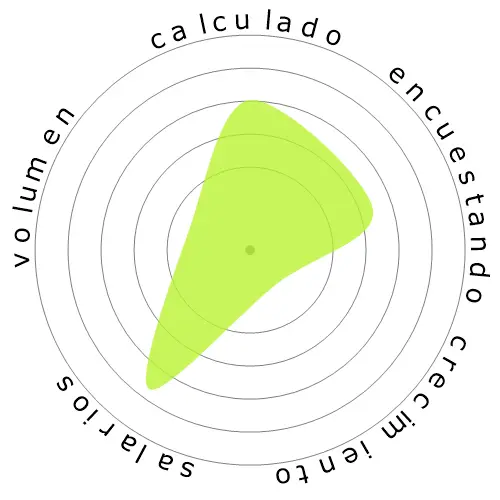Capitanes, Compañeros y Pilotos de Embarcaciones Acuáticas




Las personas también vieron
Riesgo de automatización calculado
Riesgo Bajo (21-40%): Los trabajos en este nivel tienen un riesgo limitado de automatización, ya que requieren una combinación de habilidades técnicas y centradas en el ser humano.
Más información sobre qué es esta puntuación y cómo se calcula está disponible aquí.
Encuesta de usuarios
Nuestros visitantes han votado que hay una baja probabilidad de que esta ocupación se automatice. Esta evaluación se ve respaldada por el nivel de riesgo de automatización calculado, que estima una posibilidad del 34% de automatización.
¿Cuál crees que es el riesgo de la automatización?
¿Cuál es la probabilidad de que Capitanes, Compañeros y Pilotos de Embarcaciones Acuáticas sea reemplazado por robots o inteligencia artificial en los próximos 20 años?
Sentimiento
El siguiente gráfico se incluye siempre que haya una cantidad sustancial de votos para generar datos significativos. Estas representaciones visuales muestran los resultados de las encuestas de usuarios a lo largo del tiempo, proporcionando una indicación importante de las tendencias de sentimiento.
Sentimiento a lo largo del tiempo (anualmente)
Crecimiento
Se espera que el número de ofertas de trabajo para 'Captains, Mates, and Pilots of Water Vessels' aumente 2,3% para 2033
Empleo total y estimaciones de vacantes laborales
Las proyecciones actualizadas se deben 09-2025.
Salarios
En 2023, el salario anual mediano para 'Captains, Mates, and Pilots of Water Vessels' fue de 88.730 $, o 42 $ por hora.
'Captains, Mates, and Pilots of Water Vessels' recibieron un salario 84,6% más alto que el salario medio nacional, que se situó en 48.060 $
Salarios a lo largo del tiempo
Volumen
A partir de 2023, había 34.520 personas empleadas como 'Captains, Mates, and Pilots of Water Vessels' dentro de los Estados Unidos.
Esto representa alrededor del < 0,001% de la fuerza laboral empleada en todo el país.
Dicho de otra manera, alrededor de 1 de cada 4 mil personas están empleadas como 'Captains, Mates, and Pilots of Water Vessels'.
Descripción del trabajo
Comandar o supervisar las operaciones de barcos y embarcaciones acuáticas, como remolcadores y transbordadores. Se requiere tener una licencia emitida por la Guardia Costera de los Estados Unidos.
SOC Code: 53-5021.00


Comentarios
Leave a comment
Why it is not happening? Mostly because of money but also the complexity of the problem.
Simple example: Average salary of a Safety Officer is 3000 USD. He is carrying out inspections and maintenance of firefighting equipment and other stuff. To automate only this process company will probably need to spend tens of thousands. Why would they if one can use this money now to scale one's business?
Besides navigation ship's crew has a lot of other critical roles. It will take a lot of scientific effort to set up new safe processes. Most marine companies don't have the necessary resources and infrastructure for that. I won't say a word about the lack of initiative and natural resistance of the industry to everything "new".
However, I also believe that there will always be some humans watching over ships at all times, whether on shore or elsewhere.
Deja una respuesta sobre esta ocupación